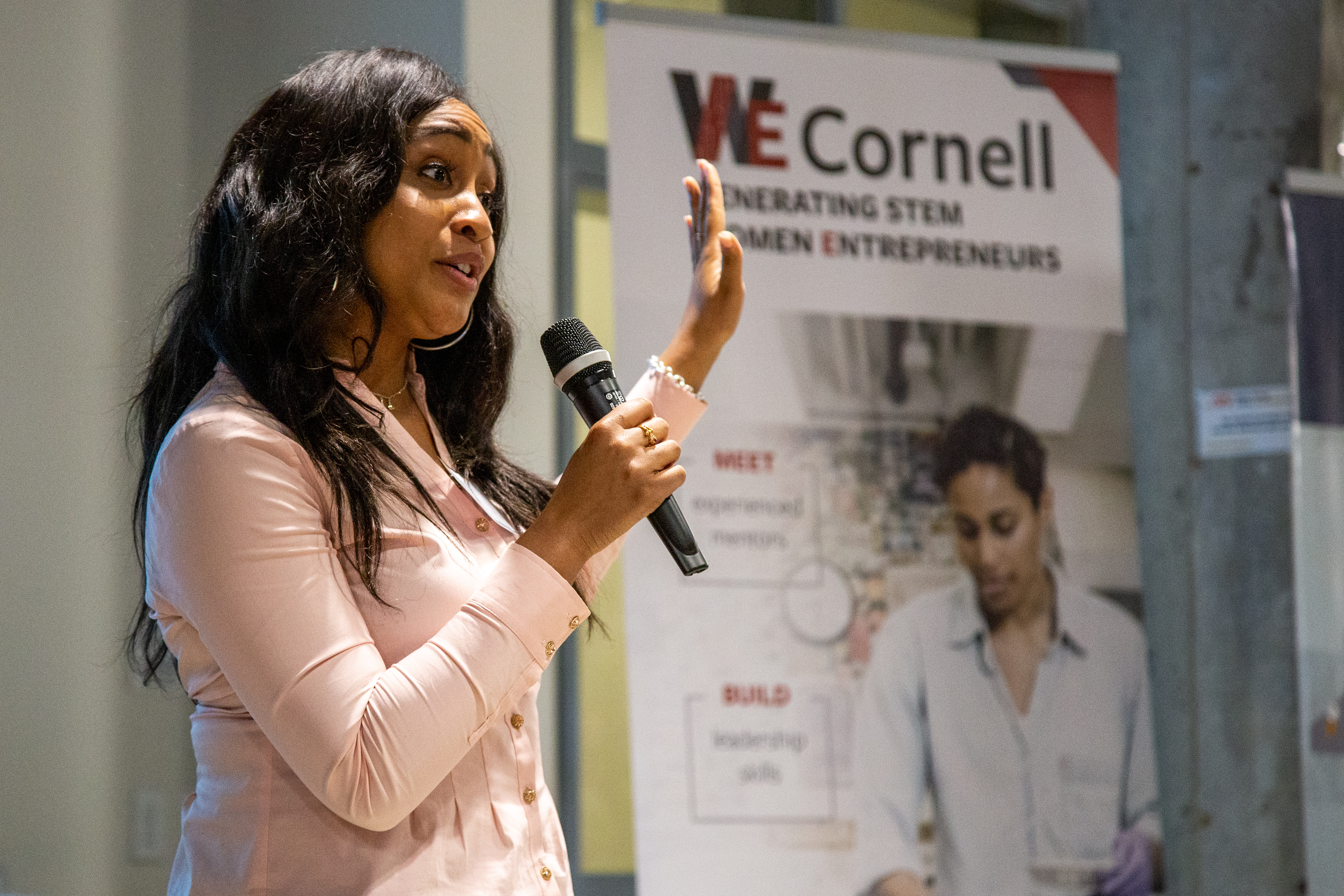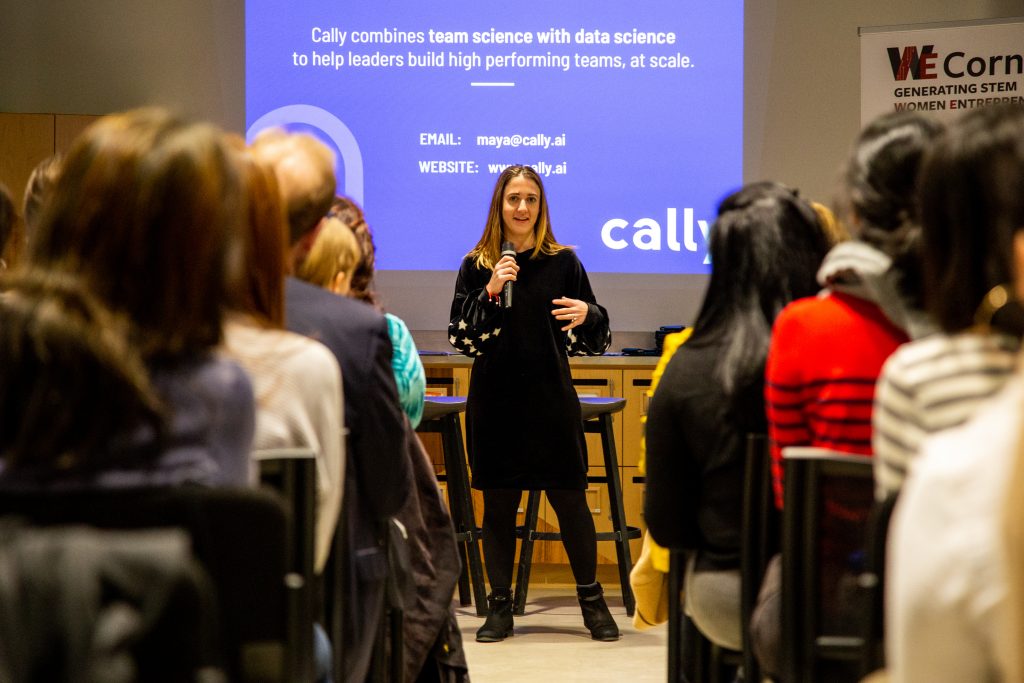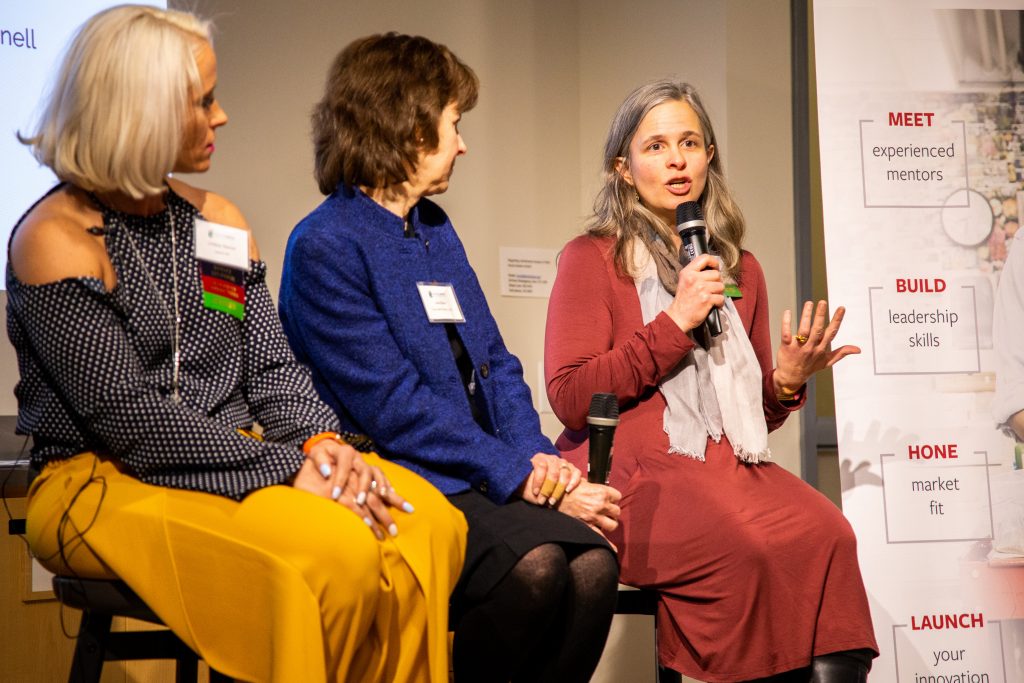
The Future is Female-led Startups: March Networking Night
By Casey Verderosa
A feeling of progress in the making was in the air at Rev’s March Networking Night: more women entrepreneurs, more funding for women-led businesses. Rev’s largest-ever networking night crowd attended the presentation, entitled “Women, Money and Tech,” which was co-hosted by Upstate Capital.


The night was kicked off by Jennifer Tegan, partner and VP of finance and administration at Cayuga Venture Fund, which invests in New York startups. Tegan’s presence as a woman in venture capital at the beginning of her career was an “anomaly.” Although times have changed some, she said, women receive only two percent of venture capital funding.
She is heartened, however, by a few things. “Our fund sees a lot more women founders approaching us for investment and I see a lot more women in C-level positions,” she said. And companies that have a more diverse makeup see greater financial returns. “Diversity and inclusion make for a more successful company, especially those who actively seek it,” said Tegan.
The audience heard pitches from some such pioneering women founders:
- Romy Fain is CEO and founder of Heat Inverse, whose cooling technology that gets cold passively and doesn’t create any waste heat has the potential to transform the refrigerated trucking industry.
- Heidi Mortensen is COO and co-founder of Shrub Bucket, a company that is revolutionizing the way people garden by delivering plants directly from growers to customers’ doorsteps.
- Maya Carmeli is CEO and co-founder of cally, which uses team science and data science to help companies build and retain stronger teams.
A new program at Cornell University, W.E. Cornell, prepares women in STEM fields to commercialize their innovations. Some of the program’s very first cohort of students presented their business ideas to the room.
- Sweat and Forget: Yashi Sanghvi wants to develop a reusable, wearable sweat patch for those who experience unwanted sweat on their palms or underarms.
- GroupCast: Shanee Lu is working on an idea to produce Bluetooth software that would enable football coaches and players in non-professional teams to communicate without making repeated trips on and off the field.
- ScholrUp: Maya Mundell is developing an online platform with a step-by-step curriculum to help students maximize their scholarship and financial aid offers.
The evening culminated with a panel of entrepreneurial-minded women sharing insights from the front lines, moderated by W.E. Cornell program director, Andrea Ippolito. Lindsay Stencel is COO and fund manager at Launch NY, a venture development organization providing seed funding to startups. It is a point of pride for Stencel that 34 percent of Launch NY’s portfolio is made up of women-led businesses.
Julie Baker is COO and co-founder of Ursa Space Systems, which in 2018 achieved a rare feat for a tech company: gender parity. “Why is diversity important?” Baker asked. “In a startup, you don’t know what you’re doing and if you need to pivot, you’ll need diversity.”
Elisa Miller-Out, founding partner of seed stage venture capital firm Chloe Capital, which invests in women-led tech companies, agrees. Her firm runs pop-up accelerators around the country to connect women tech entrepreneurs with mentors and money. “We’re moving capital in every city we go to,” she said.


The panelists shared recommendations for improving a woman founder’s chances of getting funding. Research has shown that venture capitalists will ask female founders more prevention-based questions, for example about their pasts and protections they’ve made against bumps in the road. Male founders, meanwhile, are asked more promotion-based questions, such as about expected future gains. One way women can overcome this unconscious bias is by answering a prevention-based question in a promotional way.
For those “manbassadors” looking to attract more women to their companies, a few strategies can be deployed, such as hiring in groups, which also helps with retention. “It’s hard to be the only woman or the only person of color,” said Miller-Out. Also, requiring too-specific qualifications in job descriptions, such as for degrees in fields with an historical lack of female representation, can deter women from applying. Broadening position qualifications is more inclusive.
The overall feeling of the panel, and of the night, was hopeful. In the words of Miller-Out: “We know that women are crushing it.”
More upcoming opportunities for women and others:
eCornell is offering an Executive Women in Leadership certificatefor women who are mid- to senior-level career leaders. Offered entirely online, the certificate takes three months to complete. Or don’t complete the entire certificate; enrollees are welcome to only take the coursework they’re most interested in completing.
Applications are also open for Rev’s Hardware Accelerator summer program.
